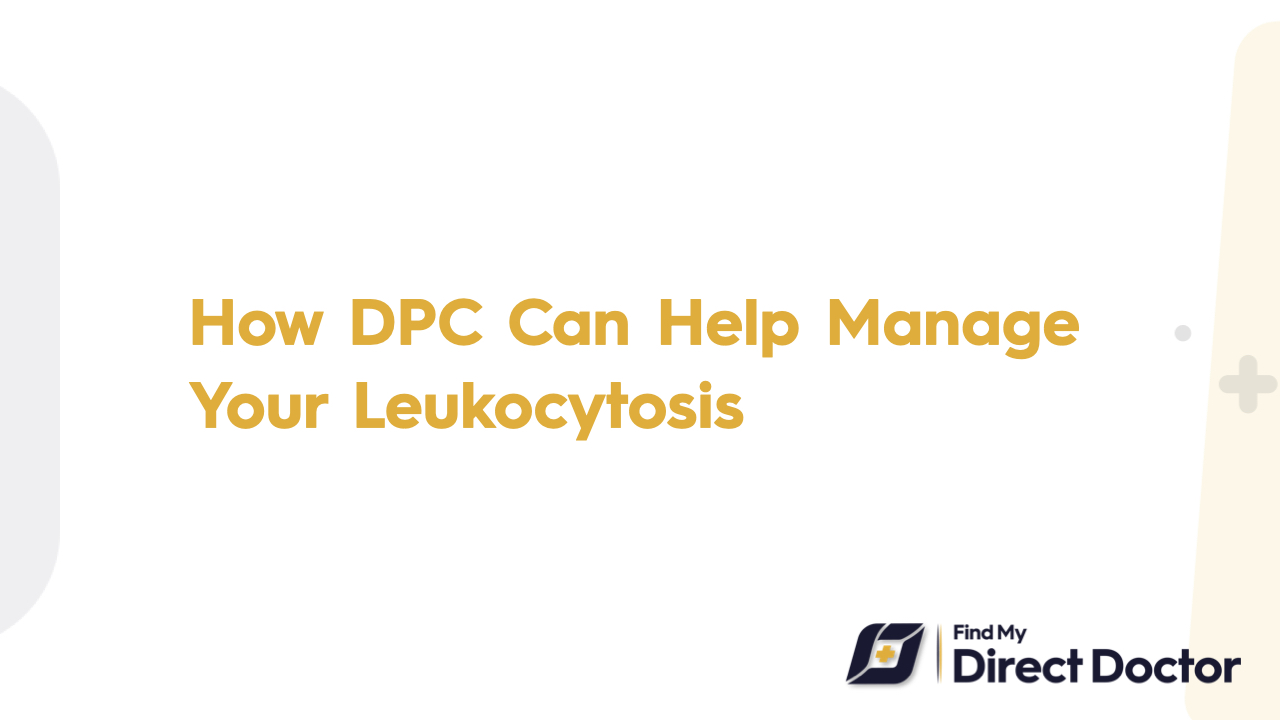



A disorder called leukocytosis is characterized by a higher than normal concentration of white blood cells (WBCs) in the blood. White blood cells aid in the body's defense against infections and are a vital component of the immune system. Leukocytosis frequently occurs as a reaction to inflammation, infection, or other underlying illnesses. It may also be a response to stress, either mental or physical. It could occasionally indicate a more serious illness, such leukemia or other abnormalities of the bone marrow.

The underlying etiology of leukocytosis is typically associated with its symptoms. The illness is often found by standard blood tests, and there may not be any obvious symptoms. When symptoms do appear, though, they may include fever, exhaustion, dyspnea, and an overall sensation of unwellness. Infection-specific symptoms, like localized pain or swelling, may also be present if leukocytosis is brought on by an infection. Leukocytosis can result in complications that may need immediate medical attention if neglected or if it is brought on by a more serious condition.
A proactive and individualized approach to controlling leukocytosis is provided by Direct Primary Care (DPC), particularly when it is associated with recurrent or chronic diseases. Patients in a DPC model can communicate directly with their primary care physicians, which facilitates prompt follow-ups, careful monitoring, and prompt resolution of any health issues. The early identification of the underlying cause of leukocytosis—whether it be an infection, inflammation, or another condition—is ensured by this direct connection.
Patients and DPC providers can collaborate closely to create a customized treatment plan that addresses the underlying cause of leukocytosis. If more testing is required, this can entail sending patients to experts or writing prescriptions for drugs, including antibiotics for infections. DPC doctors can provide lifestyle and stress management techniques to help bring white blood cell counts back to normal in cases of stress-induced leukocytosis. DPC guarantees that patients receive the best care possible, customized to meet their specific needs, by emphasizing preventive care and ongoing monitoring.
Receiving ongoing, customized care is one of the main advantages of Direct Primary Care for patients with leukocytosis. DPC gives patients the chance to develop a personal, continuing connection with their primary care physician, in contrast to traditional healthcare models that could restrict access to doctors or necessitate lengthy wait times for appointments. This guarantees that leukocytosis is continuously evaluated, with routine examinations and treatment plan modifications as needed.
Furthermore, DPC's emphasis on preventative care is essential for addressing the root causes of leukocytosis. DPC doctors take proactive measures to manage the disease, regardless of whether it is caused by an infection, inflammation, or underlying problem. This can guarantee that patients receive the right treatments at the right time and lower the risk of problems like subsequent infections or persistent inflammation. The DPC approach also enables more individualized lifestyle interventions for patients with persistent leukocytosis, like stress management or dietary guidance, which may help avert further episodes.
Leukocytosis treatment in a Direct Primary Care context is highly customized, taking into consideration each patient's unique needs and health situation. In order to fully grasp their medical history and lifestyle, DPC practitioners take the time to get to know their patients. This individualized approach to care guarantees that all possible causes of leukocytosis, including underlying infections, long-term conditions, or lifestyle choices, are appropriately addressed.
Frequent communication between the patient and their healthcare provider is generally necessary for the management of leukocytosis in DPC. Regular blood tests to track white blood cell numbers and modify therapy as necessary can be part of this. DPC providers might suggest medication, dietary adjustments, exercise regimens, or stress-reduction strategies, depending on the underlying cause. DPC's adaptability enables tailored therapy that can change according to the patient's response to treatment, assisting in the efficient management of the ailment and enhancing general health results. Patients can better manage their leukocytosis and its underlying causes with this continuous, individualized approach.
Previous Post
Next Post